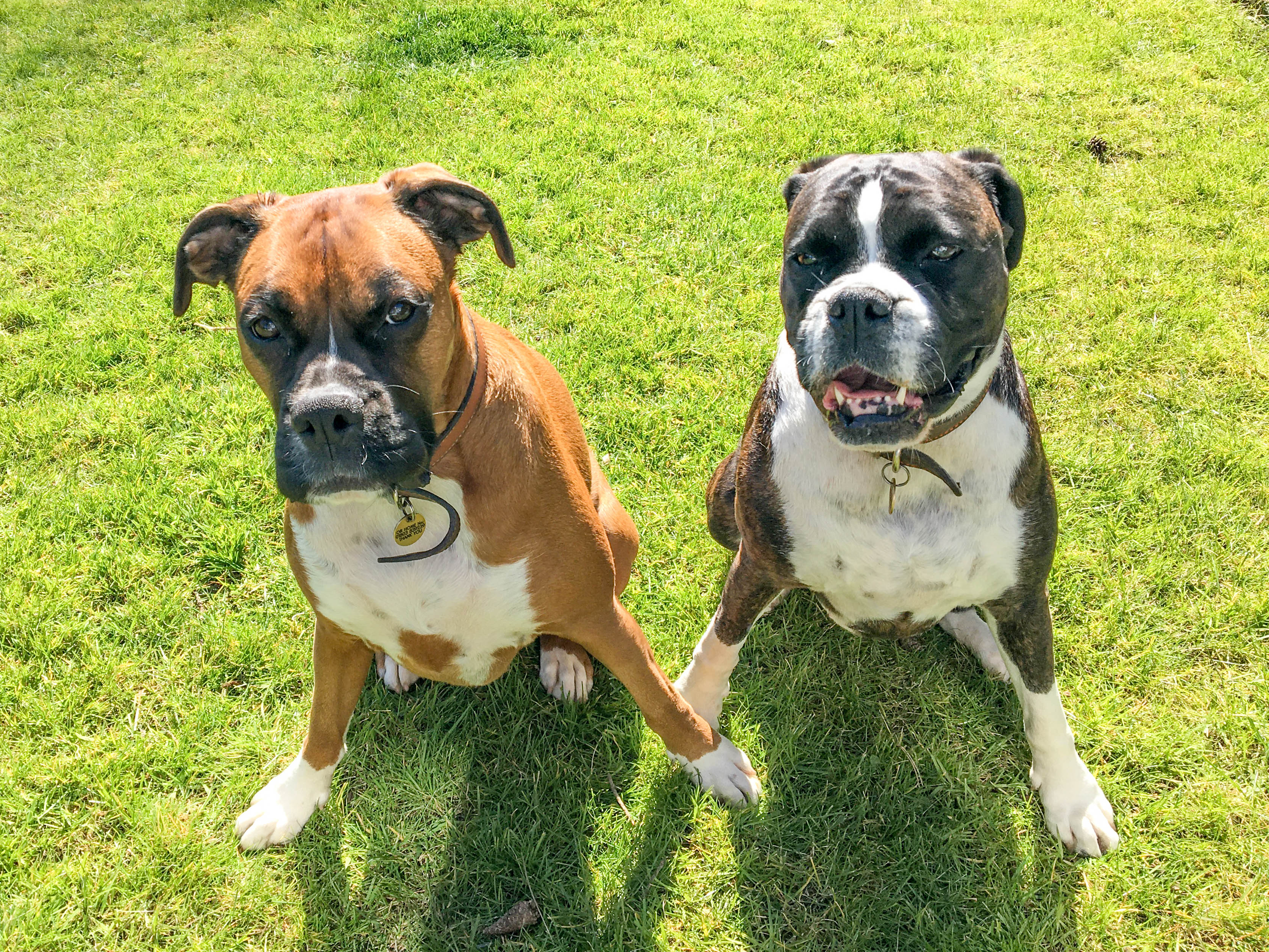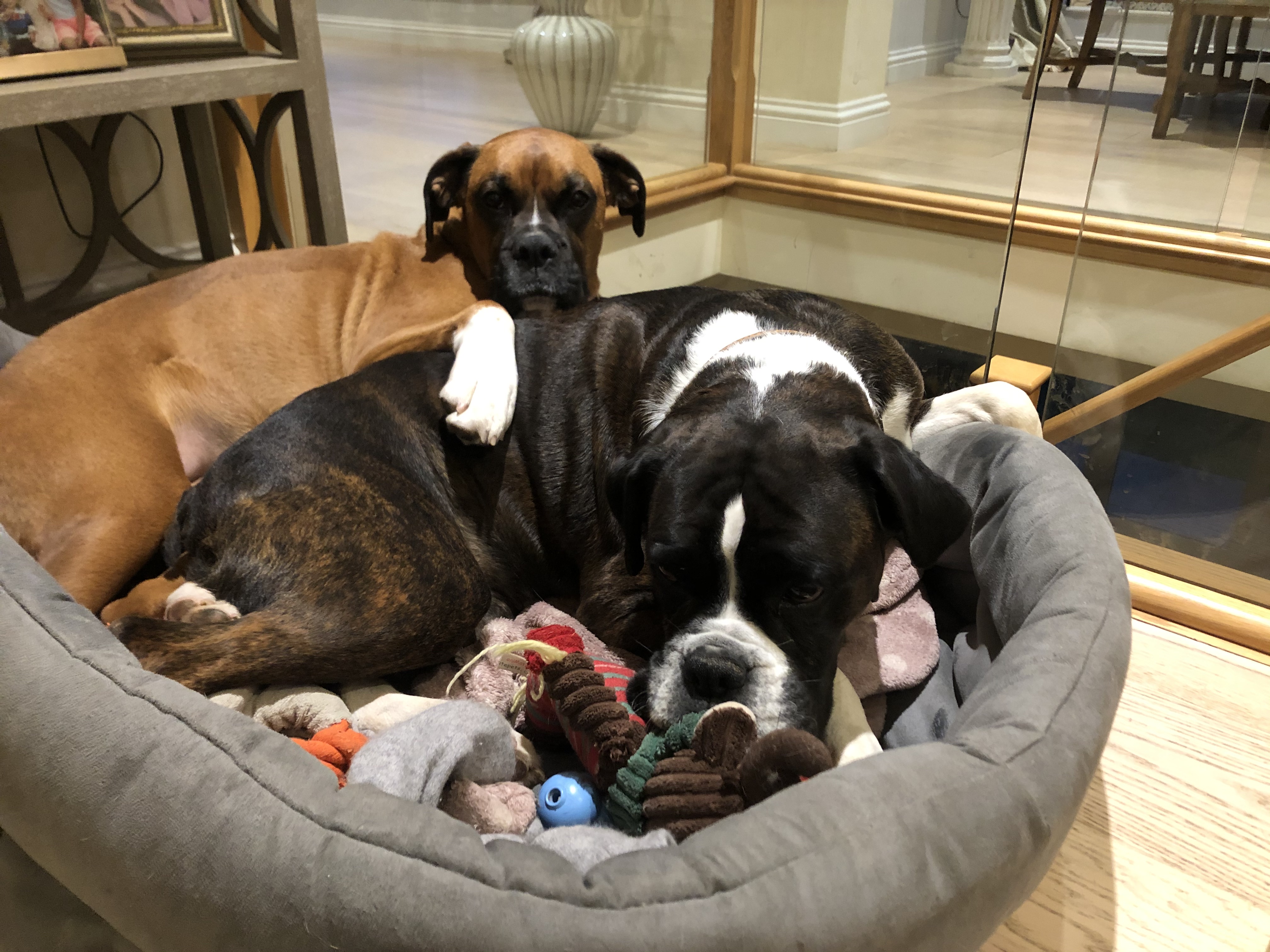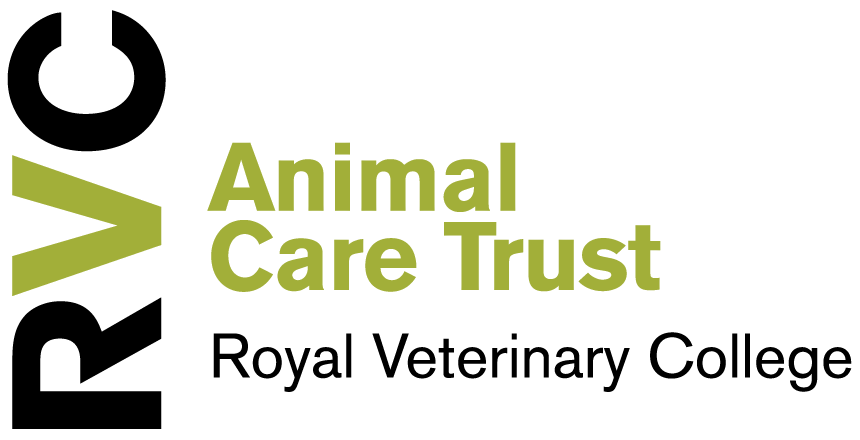Pet owners donate to CRGV research after boxer dogs' diagnoses
Pet owners Jane and Keith Williams have donated £1,000 to the Royal Veterinary College’s CRVG research after their brindle and bobtail boxer dogs fell ill with the devastating disease.
Jane and Keith noticed that their boxer dogs, Bella and Lola, were feeling unwell after a trip to Dartmoor.

Lola, a brindle boxer, is almost six years old. She is the ‘mother’ of the pair and likes to boss Bella around a bit, but they are the best of friends and are always looking out for one another. Bella, a bobtail boxer, is three years old but still acts like a puppy. She soon settled into the house with Lola – but she is definitely the mischievous one! The pair love nothing more than cuddling up together to sleep, or to tease each other with toys in the garden.
After their trip to Dartmoor, where they enjoyed some beautiful walks through the fields and the woods, they were taken to their local vet to receive antibiotics under the suspicion that they had both experienced a bite causing an allergic reaction.
Unfortunately, there was not a positive response to the initial medication. Bella and Lola returned to a veterinary practice in Surrey where it was suspected that both dogs had a virus – Bella was off of her food, refused to drink, she was sleeping most of the time, and was vomiting; Lola was fairing slightly better but was not herself and had lesions on her chest and legs. Bella and Lola were taken to the vets for four days in a row trying desperately to find some answers.
When Jane and Keith got back to their home in Devon, Bella was placed on a drip with the belief that she had Cutaneous Renal Glomerular Vasculopathy (CRGV) – a disease more commonly known as ‘Alabama rot’. At this point, she was referred to the Royal Veterinary College (RVC) to continue her treatment.
Jane said of the emotional experience: “The team were there to greet us when we arrived about 7:30 in the evening, and as you can imagine, it was a bit of a roller-coaster of a ride as we were told over the telephone that if she didn’t pass urine when she got there, there was nothing they could do for her as it had got to her kidneys. Luckily for us she did.”

After passing urine, Bella was admitted into the hospital for urgent treatment. She was required to stay in hospital where she gradually stabilized and saw improvement to her renal functions. Jane and Keith were given twice-daily updates from the team due to the precarious position Bella was in.
Fortunately, Bella responded so well to treatment that Jane and Keith were able to pick her up one week later and reunite her with Lola and bring them both home.
Jane reflected on the ordeal: “We are indebted to the RVC team and couldn’t thank them enough for their round-the-clock dedication to the well being of Bella and her eventual recovery. We are one of the lucky few whose dog has survived. They are both now back to their bouncy selves, all thanks to RVC and our local vets, Seymours.
“We have gone on to support the Royal Veterinary College with their invaluable continuing research into CRVG by making a donation to the RVC Animal Care Trust. We hope that our donation can contribute to the eradication of this devastating disease – which seems to be on the increase especially in Winter and is often fatal.”
The RVC research into CRGV aims to provide a means of improving the ability to diagnose the disease in dogs earlier compared to the current methods, meaning suitable treatments can be applied earlier which should result in a better outcome for patients.
The Royal Veterinary College is a research-led organisation and the Animal Care Trust provides funding to pioneering research that aims to improve the health and care of animals. For more information about some of the research projects that we have funded, please visit What we support - Research. Alternatively, please consider donating to help continue the funding of ground-breaking research:
| Donate |

